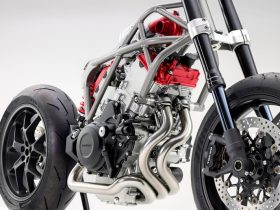BMW recalls its Active E ahead of eventual powertrain problems. Wear and tear in the transmission could render the electric car inoperable.
BMW has taken precautionary measure to recall its Active E all-electric Series 1 cars ahead of eventual powertrain failures. The company was quoted saying: “help define the future of mobility” and avoid the possibly immobilizing its electric vehicle, EV drivers. Much to the German carmaker’s credit, it has informed the National Highway Traffic Safety Administration (NHTSA) before any such problems arise.
BMW Steps Up EV Safety. This is an interesting and important move on behalf of BMW. The company has been pragmatically studying the electrification of its vehicle for a few years with the Mini E and Active E programs before it launches sometimes later this year the stunning plug-in hybrid (PHEV) i8 and, or its all-electric i3. It shows BMW is eager not to paint its electric cars, and similarly EVs in general in a bad light.
Technically Speaking. At the crux of the problem, BMW wrote the NHTSA it had discovered a problem with its transmission. The inadequate lubrication of it could cause a gear to wear out and render the electric motor unable to drive the car. With an EPA estimated range of 94 miles, the Active E sports a 32 kWh lithium-ion battery pack coupled to a 125 kW (168 hp) electric synchronous motor driving the rear wheels.
Just how serious is BMW about electric vehicles in general? According to the preemptive action, a lot. The company said two of its engineering vehicles showed failures last February. Although these vehicles are not in the consumer test fleet, BMW began regular inspections of the lubrication on all its consumer test fleet cars. Indeed, some consumers began reporting powertrain failures last year and by December 16 such failures began happening. BMW announced its recall before the problems could effect all 700 vehicles in the test fleet. To date, according to Dave Buchko, a BMW representative, 340 of them have already had changes made during their regular service.
Voluntary Or Forced? The automaker had no choice but to voluntarily recall the vehicles. Under federal regulations if a manufacturer is aware of a safety problem it needs to act within five days to implement a recall unless it faces civil fines.
This shows how serious BMW is making sure its electric vehicles are well perceived. It makes sense for the German camaker that built its reputation on well engineered performance cars that its EVs should be held to the same level of quality. BMW knows it needs to make sure everything happens in a positive way with its Active E and before it introduces its plug-in hybrid i8 and all-electric i3.






